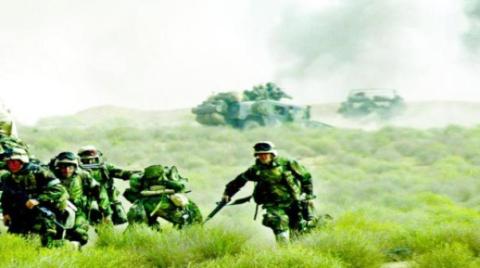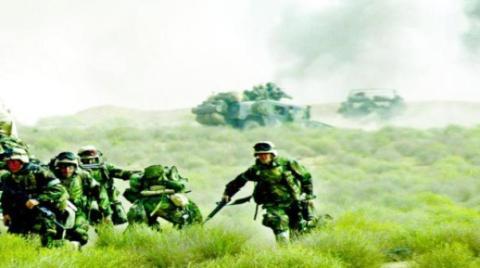
The US Senate voted Wednesday to repeal the 2002 Iraq war Authorizations for the Use of Military Force (AUMF) against Iraq.
Senators voted 66-30 to repeal the 2002 AUMF and the 1991 authorization, and the legislation now goes to the House of Representatives for a vote, after which it will be sent to President Joe Biden for approval.
The Congress is close to revoking the authorization for a war it approved in October 2002 after former President George W. Bush resorted to Congress to obtain his approval to launch military operations against Saddam Hussein's regime. The Democrats pushed hard to cancel the authorization and celebrated its approval.
Senate Majority Leader Chuck Schumer said the US, Iraq, and the entire world had changed dramatically since 2002, and it's time the laws on the books catch up with those changes.
"These AUMFs have outlived their use," added Schumer.
Opponents of the repeal argued that it could project weakness as the US faces conflict in the Middle East.
Senate Republican leader Mitch McConnel said, "Our terrorist enemies aren't sunsetting their war against us."
"When we deploy our servicemembers in harm's way, we need to supply them with all the support and legal authorities that we can," he said, adding: "The 2002 AUMF bears directly on the threats we face today in Iraq and Syria from Iran-backed terrorists."
The Republicans sought to pass a series of amendments within the framework of canceling the mandate to address the Iranian threat, especially in light of the repeated attacks on US forces in Syria and Iraq.
The White House supported the Senate passage of the 2002 AUMF, adding that the US conducts no ongoing military activities that rely on the authorization.
"Repeal of these authorizations would have no impact on current US military operations and would support this Administration's commitment to a strong and comprehensive relationship with our Iraqi partners."
The statement said: "That partnership, which includes cooperation with the Iraqi Security Forces, continues at the invitation of the Government of Iraq in an advise, assist, and enable role."
Supporters of the repeal say that the administration has the necessary powers in the war against terrorism, following another authorization approved by Congress in 2001, after the 9/11 attacks, which the lawmakers are not seeking to rescind.
Congress approved it to give Bush broad authority to invade Afghanistan as part of the war against terrorism. Unlike the authorization for the war in Iraq, it does not explicitly mention any country. Instead, it approves using force against any nation, organization, or person that has planned or assisted in an attack against the United States.
The legislation now goes to the House of Representatives for a vote. Speaker Kevin McCarthy has signaled support for it and said it would likely be brought to the floor.
McCarthy said he supports keeping the 2001 authorization for the global war on terror in place.
"I support keeping the worldwide AUMF, so action can be taken if there's a terrorist anywhere in the world. But Iraq, we're 20 years into it, I don't have a problem repealing that," McCarthy said.
The US law gives the president the right to launch military strikes for reasons related to US national security but obliges him to inform Congress within 48 hours of launching any strike, and it also bans any US forces from remaining on the battlefield for more than sixty days without authorization.
The president cannot officially declare war without the consent of Congress.










